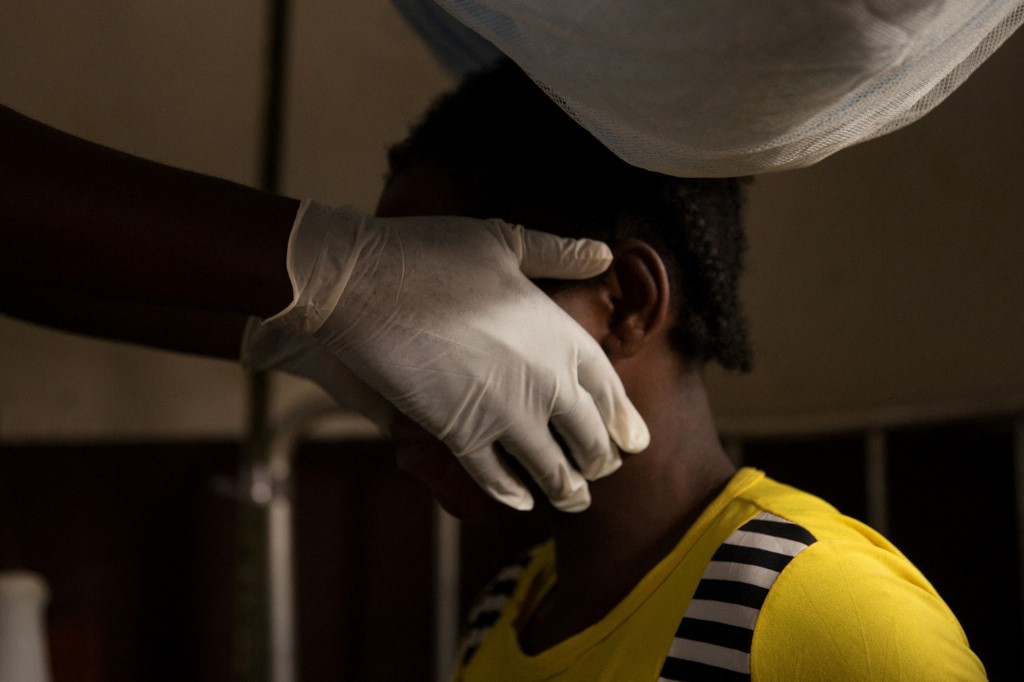Popular Reads
Top Results
Can't find what you're looking for?
View all search resultsPopular Reads
Top Results
Can't find what you're looking for?
View all search resultsStep up surveillance, strengthen public health measures to prevent monkeypox transmission
A coordinated response that actively combats stigma can stop transmission and protect vulnerable groups.
Change text size
Gift Premium Articles
to Anyone
T
he multi-country outbreak of monkeypox represents a Public Health Emergency of International Concern, the highest level of global public health alert. From January through July 2022, more than 19,000 probable and laboratory confirmed cases of monkeypox have been reported to the World Health Organization (WHO) from at least 78 countries across all six WHO regions, including the South-East Asia region.
Cases have involved mainly, but not exclusively, men who have sex with men. However, anyone who has close contact with someone who is infectious is at risk. As we learn more, additional cases may be identified in the broader community.
Monkeypox can cause a range of signs and symptoms, including fever, rash, and swollen lymph nodes, which can be easily confused with symptoms of other illnesses, such as chickenpox, measles, and bacterial skin infections. In most cases, symptoms subside within a few weeks. However, in some cases – particularly among newborn babies, children and people with underlying immune deficiencies – infection can lead to medical complications and even death. Since January, five deaths from monkeypox have been reported to WHO.
If you think you might have monkeypox, you can protect others by seeking medical advice and isolating from others until you have been evaluated and tested. Until more is understood about transmission through sexual fluids, people who have had probable or confirmed monkeypox should use condoms while having sexual contact for 12 weeks after recovery.
Though the risk of monkeypox globally and in the region is moderate, the potential of further international spread is real. All countries of the region must therefore strengthen preparedness and response capacities, building on a series of priority actions, while WHO continues to coordinate and support global research and equitable access to key health tools such as vaccines and treatments, based on public health risks and needs.
First, step up surveillance, with a focus on sensitizing and training health workers and ensuring access to reliable, affordable and accurate diagnostic tests. Health workers should immediately report suspected cases to local or national public health authorities, collect and ship specimens for laboratory testing, and initiate contact tracing while protecting the human rights, privacy and dignity of affected individuals and their contacts.
National IHR focal points should report all probable and confirmed cases to WHO using the minimum data set contained in the WHO Case Report Form.
Second, strengthen risk communication and community engagement, building trust and awareness, and facilitating timely access to diagnosis and care. Health leaders should identify and leverage existing community-based groups, networks and services to share reliable and factual information with populations at high risk of infection. They should initiate systematic social listening for emerging perceptions, concerns and misinformation that might hamper response actions, while also consulting with and engaging affected communities and other stakeholders to promote care-seeking behaviour.
Third, scale up support for clinical management and infection prevention and control. Health leaders and facility administrators should establish recommended clinical care pathways and protocols for the screening, triage, isolation, testing and clinical assessment of suspected cases. They should ensure all health and laboratory workers have adequate access to appropriate personal protective equipment, on which those workers must be adequately trained. The collection and reporting of clinical outcomes should be harmonized using the WHO Global Clinical Platform for Monkeypox.
Together, we must actively combat stigma and discrimination as a core part of the response. Stigma and discrimination violate human rights. They exacerbate social inequalities and deepen health inequities. At the same time, stigma and discrimination directly undermine disease control.
People who experience stigma may be less likely to report symptoms and seek care due to fear of rejection, social isolation or the impact of discrimination on their families and friends. To see this challenge through, together we must act in solidarity and support affected individuals and groups and those who care for them.
With the right strategies, this multi-country outbreak can be stopped – globally, and in the region.
Toward that goal, WHO will continue to support all countries of the region, ensuring a response that is coordinated, and which actively combats stigma and protects the vulnerable.
***
The writer is regional director, WHO South-East Asia region.











